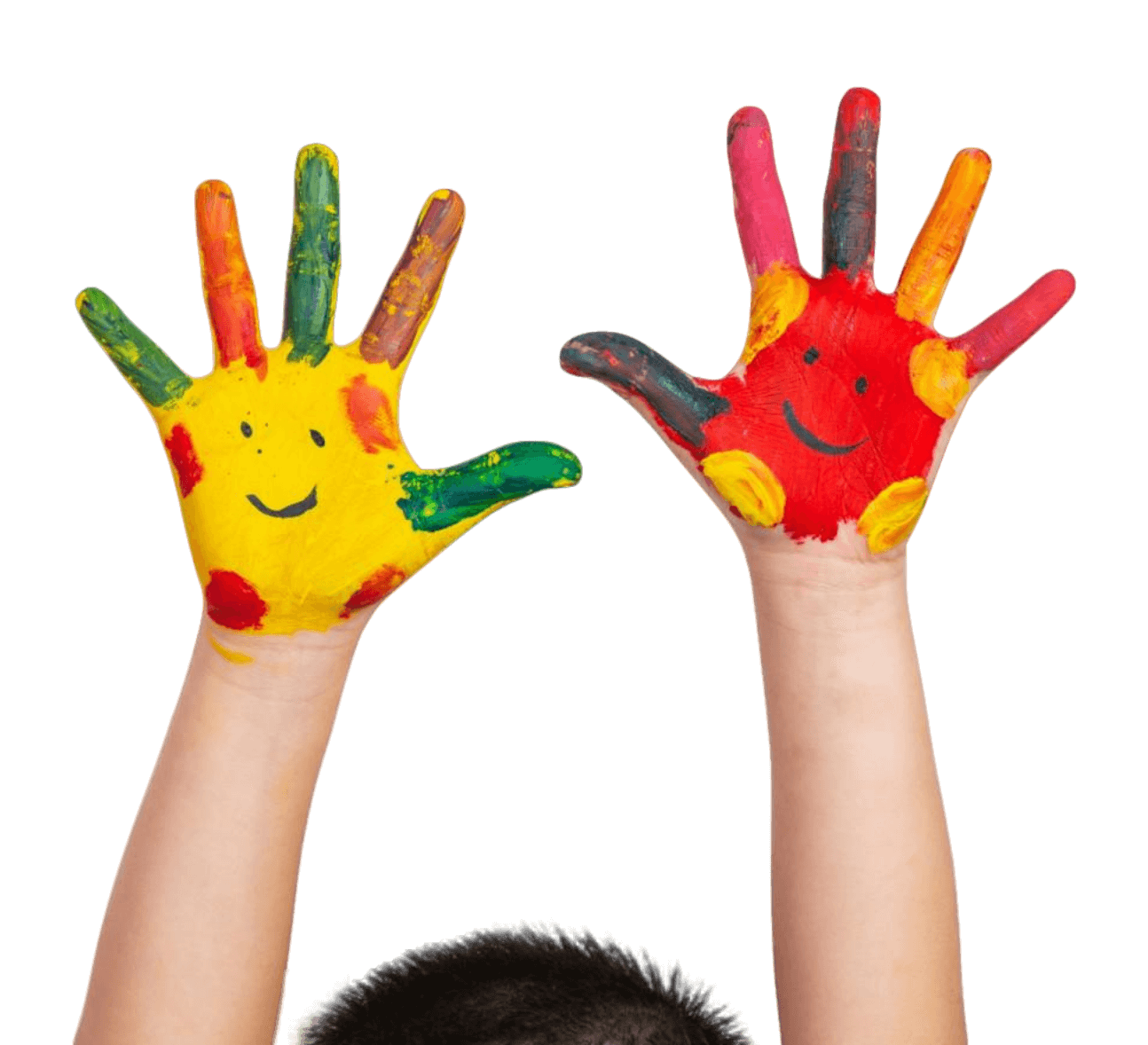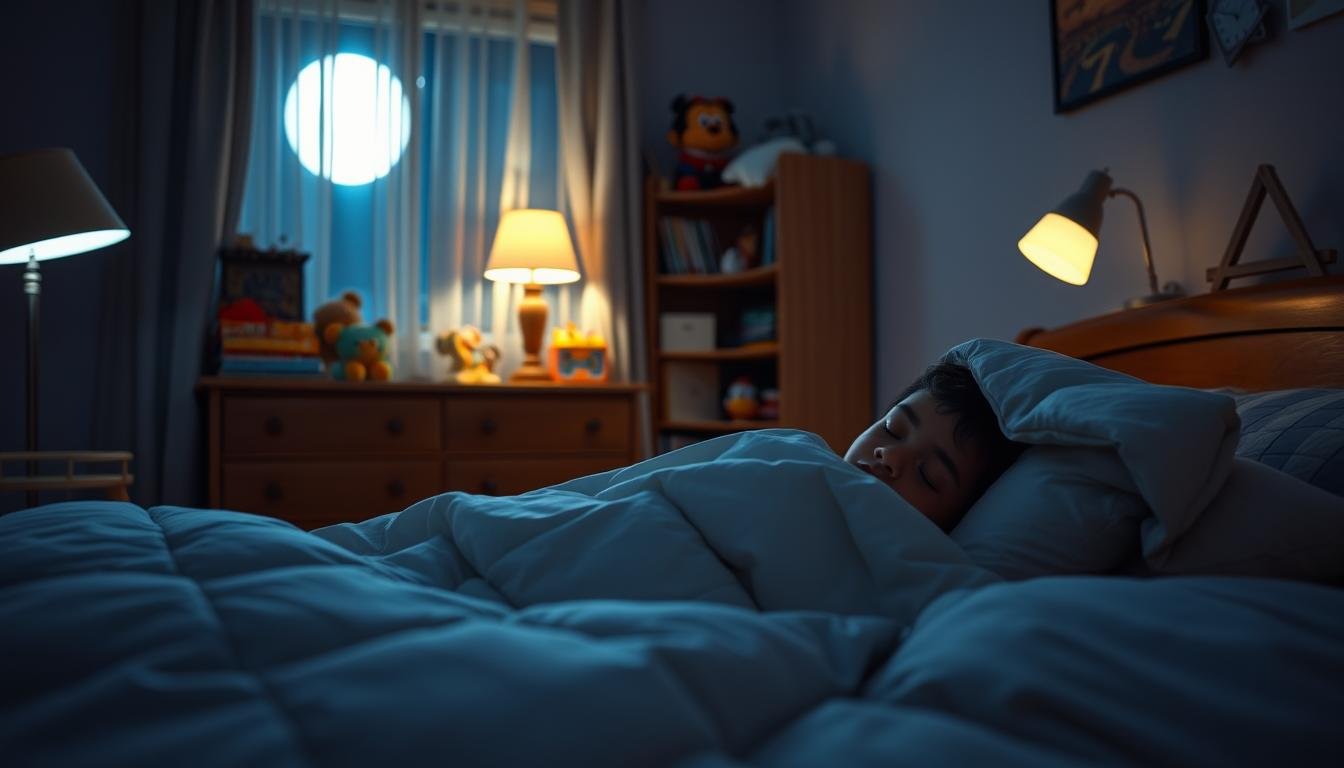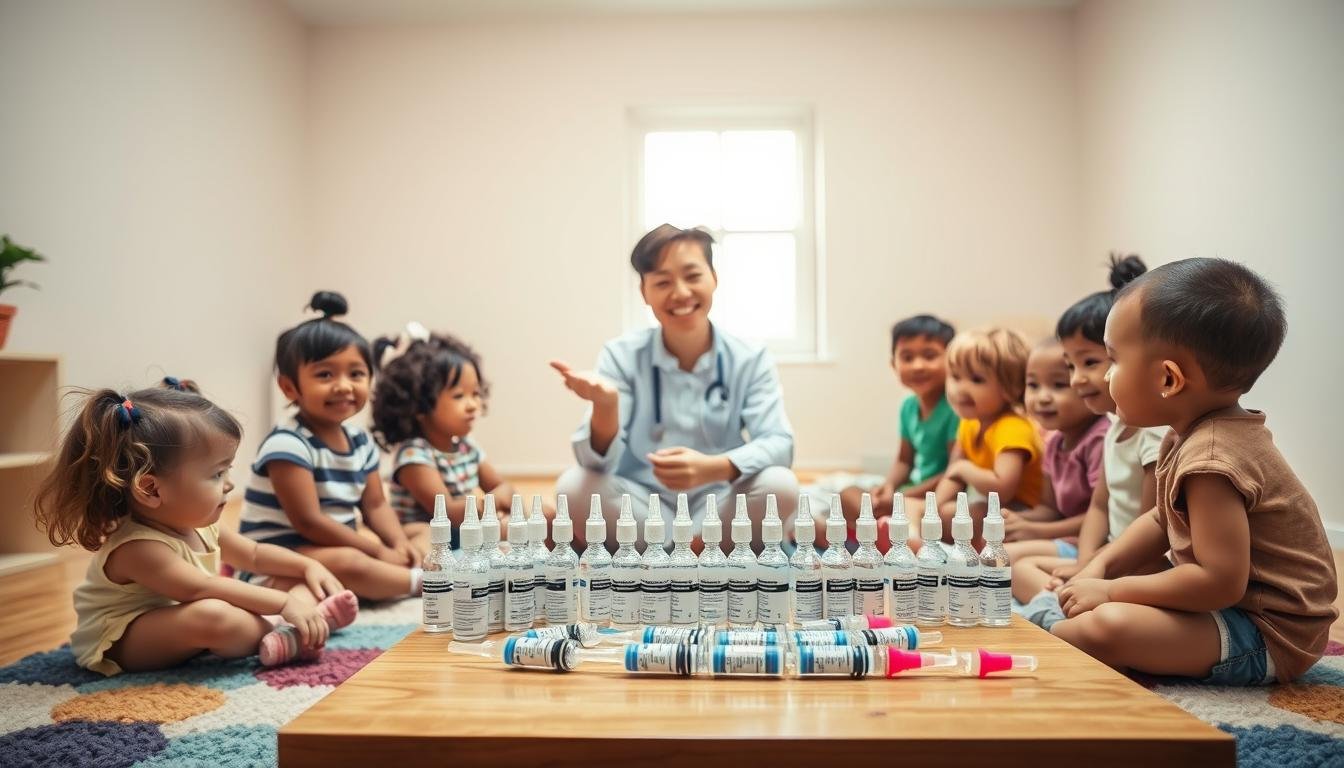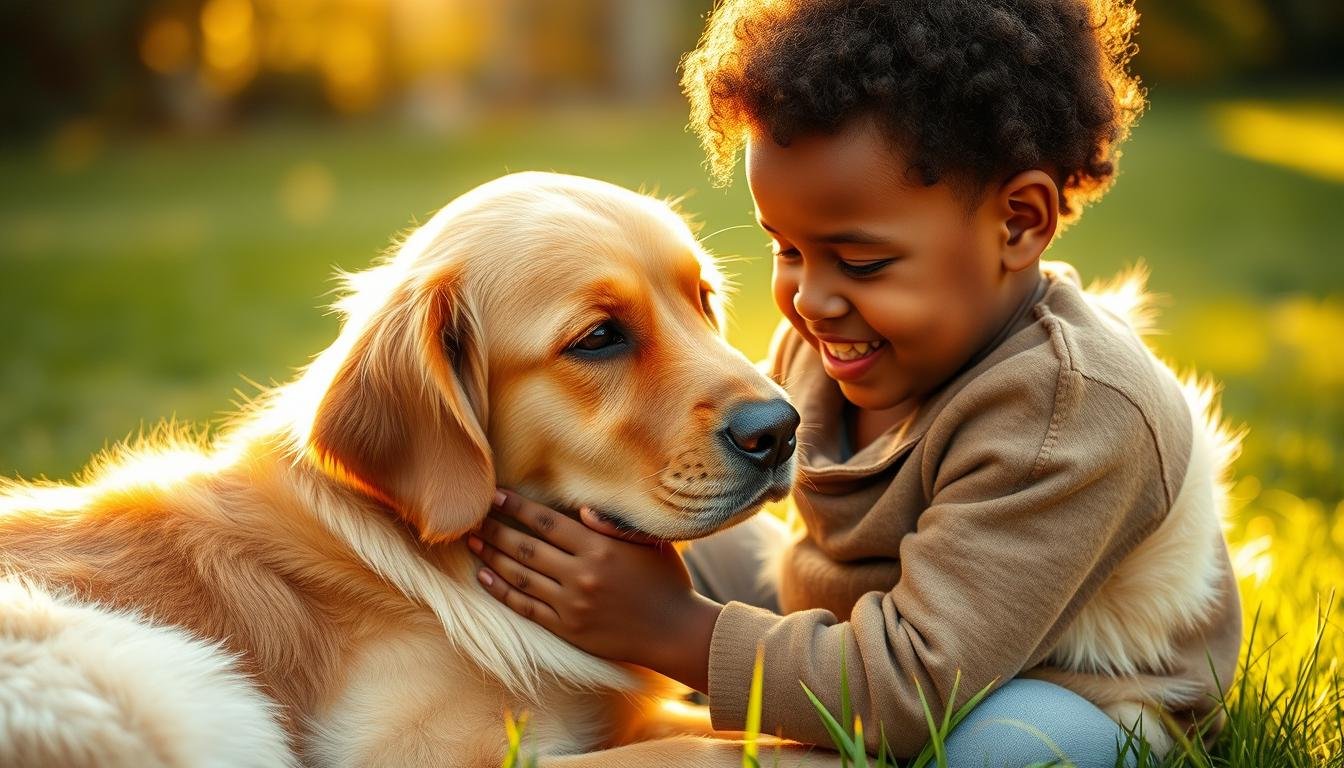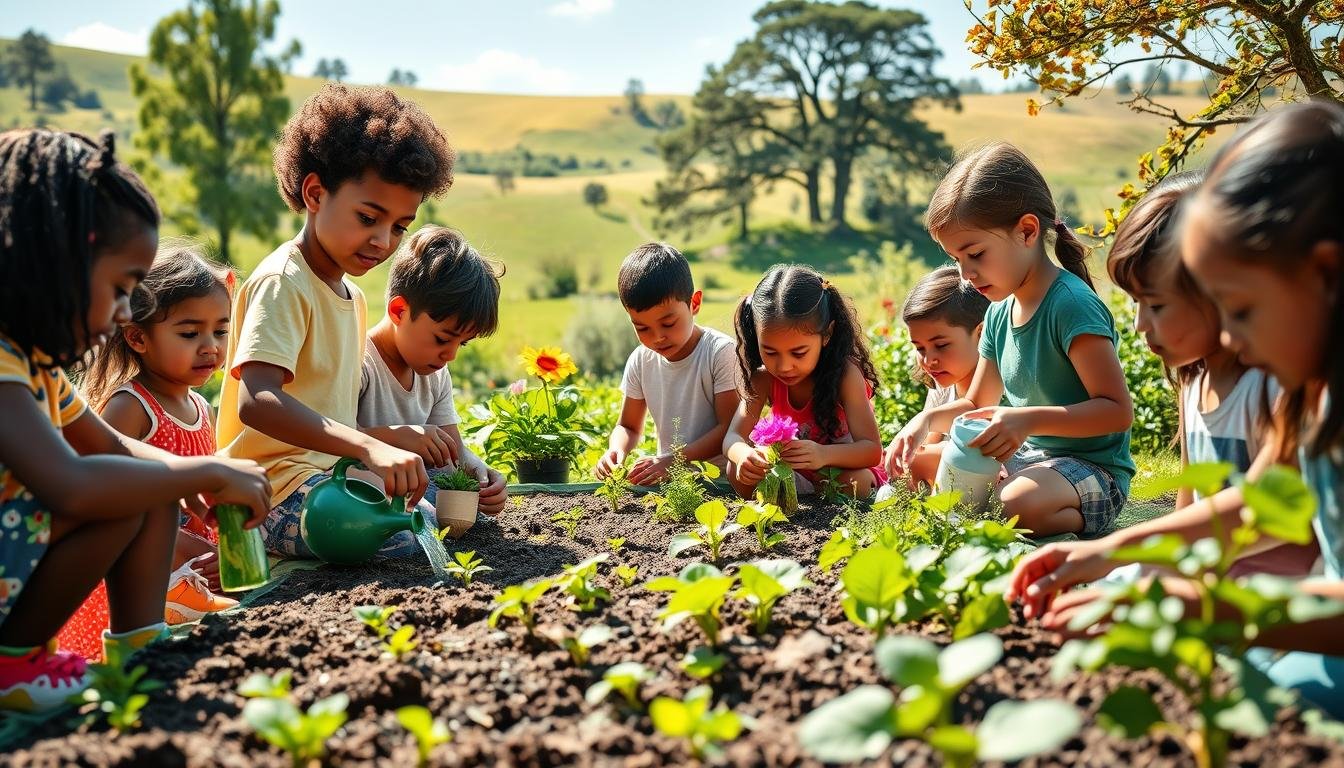Do you remember the warmth of your parent’s hug when you were young? That feeling of being safe and loved? It’s a memory we all treasure. And it’s more than just a memory—it’s key for growing up. When we held our newborns close, we did more than comfort them. We helped build their brains and emotional health. Studies show that affection deeply affects kids, setting them up for a strong future.
Children who get lots of hugs and kisses grow up with bigger, healthier brains. The New York Times reports that hugging and touching help kids learn better and feel less stressed. Every hug and cuddle sends a message of safety and care to their growing minds.
As caregivers and parents, we do more than just feed and clothe our kids. We nurture them with touch, helping them grow into well-adjusted adults. Understanding this can create a space where our children can flourish. Our role is huge, shaping not just their today but their future too.
The Science Behind Physical Affection and Brain Development
Research shows that hugs can deeply affect a child’s brain. Studies on the neuroscience of parenting highlight this. For instance, hugs can lower stress, grow brain areas, and boost important chemicals like oxytocin and cortisol.
A 2010 study conducted by researchers at Duke University Medical School revealed that infants with highly affectionate and attentive mothers are more likely to develop into happier, more resilient, and less anxious adults. The study tracked 500 individuals from infancy through their early 30s. At eight months old, the babies underwent developmental tests while psychologists observed their mothers’ interactions with them. Three decades later, those same individuals were interviewed about their emotional well-being.
Functional MRI scans show how hugs affect the brain. Kids who get hugs often feel safer and less anxious. This is why groups like Kids Miracle Steps support families in raising their children well.
Touch also helps the brain grow by making it adapt to new experiences. Different kinds of touch, like holding hands or stroking, make us feel good. A 2013 UCLA study found that loving parents make their kids happier and less anxious, changing their brains for the better.
| Key Findings | Impact |
|---|---|
| High-Level Maternal Affection (Duke University Study) | Reduced anxiety and stress in later life |
| Unconditional Parental Love (UCLA Study) | Improved emotional happiness and brain development |
| Skin-to-Skin Contact | Calms babies, boosts sleep, and enhances brain development |
| Affectionate Touch | Refines somatosensory system and improves emotional processing |
Benefits of Physical Affection for Kids
Physical affection does more than just comfort kids. It helps their emotional growth a lot. Babies who get hugs and kisses often grow up emotionally healthy. They feel good because of the ‘feel good’ chemicals in their brain.
Kids who feel loved can handle their feelings better. This makes them better at social skills and less likely to act out. It also helps them be strong and brave when facing tough times. Actions like back rubs and high fives are very important. Boys might start to pull away from touch around 7-9 years old. Girls, especially, need touch from dads to feel safe.
When kids are stressed, sad, or sick, hugs and cuddles help a lot. Reading “The Five Love Languages of Children” can help you understand what your child needs. Also, families that show love have less anger and fights. This good vibe helps kids behave better in school too. When kids feel loved and guided, they disrupt class less. It’s also true that kids who act out the most need the most love. By showing them warmth and care, we help them feel supported.
If you want to help your child grow, occupational therapy at Kids Miracle Steps is a great option. It helps with motor skills and overall health, and parents play a big role.
Expressing Physical Affection to Kids: Practical Tips for Parents
Adding physical affection to our daily routines can strengthen our bond with kids. Start by setting specific times for hugs, like before school or bedtime. This comfort and security boost is huge.
Little actions, like snuggling during a movie or a comforting touch during homework, help a lot. It’s key to notice and respond to your child’s mood and body language, especially with older kids. This ensures your affection is comforting and appreciated.
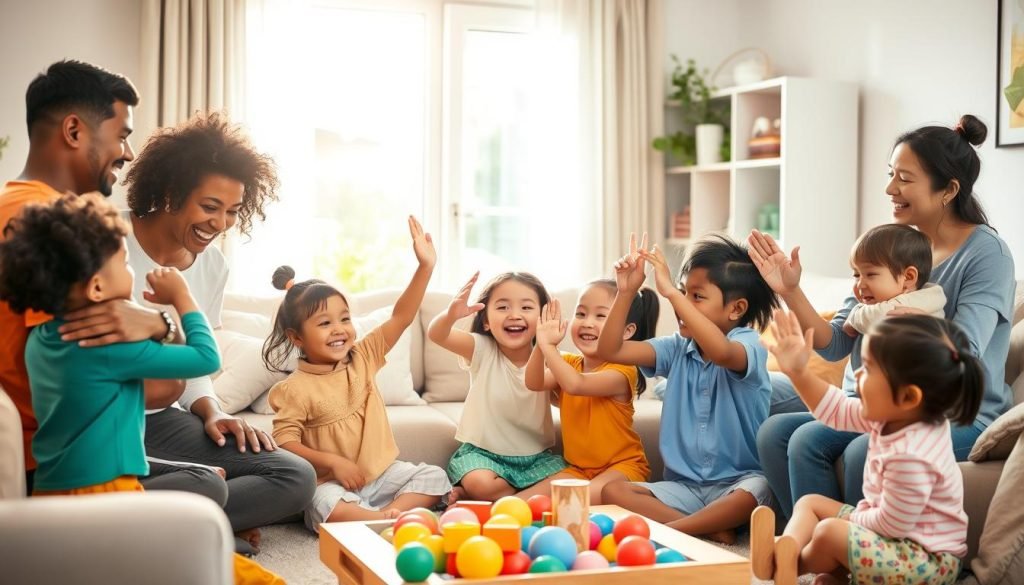
Using hugs or high-fives as rewards can also work well. It boosts your child’s self-esteem and happiness. Spending quality time with your child is also important. It strengthens your bond in meaningful ways.
Here’s a quick guide to some effective ways to show affection:
| Technique | Description | Benefit |
|---|---|---|
| Scheduled Hugs | Set times for daily hugs, like before bed or during stressful moments | Provides security and comfort |
| Snuggling | Snuggle during a favorite activity, like watching a movie | Alleviates stress, builds connection |
| Positive Touch | Give a comforting touch during tasks like homework | Reduces stress, reinforces support |
| Affection as Reward | Use hugs or high-fives to celebrate achievements | Boosts self-esteem and happiness |
By using these tips, you can make your home a loving place. Small gestures can lead to a happy and secure family life.
Impact on Kids with Special Needs
Children with special needs face unique challenges. Gentle touch, known as therapeutic touch, can help a lot. For example, kids with autism spectrum disorder (ASD) struggle with social skills. Research shows that touch helps these brain areas in kids with autism.
This highlights the need for special parenting techniques. These techniques are crucial for supporting these children.
- Structured physical engagement, like therapeutic massages or hand-holding, can help reduce sensory sensitivity and anxiety.
- Non-verbal communication is strengthened through consistent physical affection, providing a sense of security for children with special needs.
- Affection receptivity may vary based on temperament and ASD diagnosis, so flexibility and understanding are crucial.
With one in 68 kids likely to have ASD, using therapeutic touch and special parenting is vital. Early help, especially in the first three years, is crucial. Also, gender-specific approaches are important, as ASD is more common in boys.
Long-Term Effects of Early Physical Affection
Childhood affection has a lasting impact on adult mental health and brain function. Physical touch in early years boosts mental health and emotional balance in adulthood. The brain grows fast in the first years, with most of its size formed by age three. During this time, the brain makes thousands of connections every second. This rapid growth is crucial for brain development.
Studies on premature babies and touch show that touch boosts growth and brain function. Adults who were loved and cared for as children have stronger social bonds and emotional stability. This shows the lasting benefits of early nurturing.
Children who were neglected early in life are more prone to anxiety. They may also struggle with learning and memory. On the other hand, those raised in loving environments show remarkable resilience and emotional health as adults.
Choosing the right gifts and showing affection can greatly help children with special needs. It helps them develop motor and cognitive skills, along with emotional stability. Thoughtful engagement and physical touch lay a strong foundation for lifelong emotional health.
Conclusion
Physical affection is very important for kids and parents. It helps kids grow emotionally and physically. It also makes parents better at raising their children. Hugs and kisses are key. They help kids’ brains grow and make bonds stronger. These simple actions are crucial for good parenting. For kids with special needs, touch is even more important. Places like Kids Miracle Steps help families a lot. They teach ways to care for and bond with kids. Adding positive touches to daily life is essential. It makes a loving space for kids to grow and succeed.

